Text
A DIFFERENT KIND OF BEST SONGS OF 2017 LIST
So, like, what’s the actual utility of these bullshit best songs of the year list?
Pitchfork’s goal seemed to be to cross over with this year’s Dunkin Radio™ playlist as much as possible (trust me, I’d know), and elsewhere there generally seems to be a lot of lip service to songs that I don’t think anyone actually… likes. LOVE. by Kendrick Lamar? Seriously? So clearly the whole idea’s gotta be flawed somehow, and I’m gonna try and approach it a little differently. Here’s a songs of the year list in categories:
*Note: Some of these songs aren’t streaming yet; I’ll add them to their Spotify playlists as they become available.

MOST FUTURISTIC - In a lot of ways, 2017 was kinda like a horrifying vision of the future someone might have had a few years back, playing out in real life. Fortunately, musicians like yaeji and experimental electronic prodigy Laurel Halo kept their eyes further out on the horizon, conjuring up the music of a sleeker tomorrow:
1. yaeji - raingurl
2. Laurel Halo - Jelly
3. Iglooghost - Super Ink Burst
4. Nicolas Jaar - A Coin In Nine Hands
5. Kelly Lee Owens - Anxi (feat. Jenny Hval)
Spotify

MOST CINEMATIC - Some of the songs of 2017 that most embodied the cinematic, conjuring up scenes of apocalyptic tension, twee romance, or maybe late night, art house-y contemplation:
1. Ryuichi Sakamoto - ubi
2. Ariel Pink - Another Weekend
3. Four Tet - Daughter
4. OCS - The Baron Sleeps and Dreams
5. Mac Demarco - Still Beating
Spotify
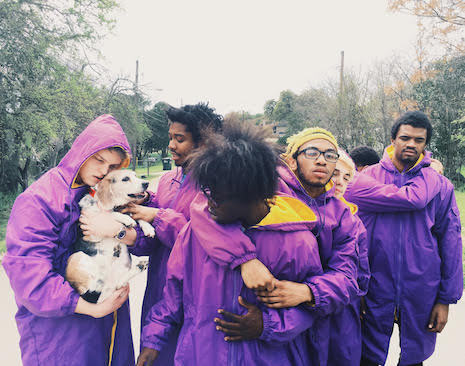
BANGER OF THE YEAR - The most important quality of a banger in 2017? Apparently, the song title has to be as bizarrely stylized as the 22, A Million tracklist. Anyways, these are the songs that went the hardest this year, at least where I live and party:
1. BROCKHAMPTON - SWAMP
2. Kendrick Lamar - HUMBLE.
3. Lil Uzi Vert - XO TOUR Llif3
4. Lil Pump - Gucci Gang
5. Tyler, The Creator - Who Dat Boy (feat. A$AP Rocky)
Spotify

KING GIZZARD AND THE LIZARD WIZARD - King Gizzard brought a whole new meaning to the word prolific, dropping 70 plus songs over four albums (with another to go before new years!) since January. Not to worry, I listened to it all for you, and these are the only ones that matter:
1. King Gizzard and the Lizard Wizard - Nuclear Fusion
2. King Gizzard and the Lizard Wizard - The Spider and Me
3. King Gizzard and the Lizard Wizard - Crumbling Castle
4. King Gizzard and the Lizard Wizard - Beginner’s Luck
5. King Gizzard and the Lizard Wizard - Rattlesnake
Spotify

WORST SONG - I’m thinking the name of this category probably speaks for itself. Seriously though, Revival is horrible:
1. Eminem - Remind Me
2. Eminem - Untouchable
3. Kendrick Lamar - GOD.
4. Drake - KMT (feat. Giggs)
5. Eminem - Framed
Spotify
#best songs of 2017#worst songs of 2017#categories#pitchfork sux lol#King Gizzard and the Lizard Wizard#brockhampton#eminem#lil pump#lil uzi vert#kendrick lamar#yaeji#laurel halo#nicolas jaar#kelly lee owens#iglooghost#fleet foxes#chainsmokers#Tyler The Creator#mac demarco#ariel pink#four tet#ryuichi sakamoto
1 note
·
View note
Text
MY FAVORITE MUSICAL DISCOVERIES OF 2017
Only reviewing the contemporary stuff can be boring - besides, there’s a virtually infinite amount of music just waiting to be discovered of every shape or size you could imagine out there going back decades and decades. So, here are some albums I’ve had the pleasure of discovering and falling in love with in this past year or so. No particular order.
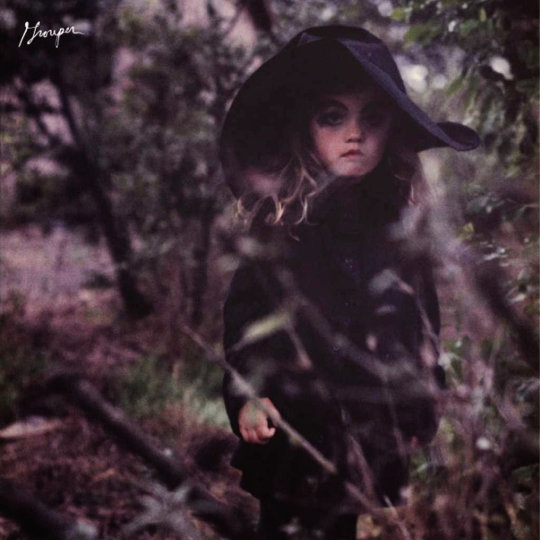
GROUPER//DRAGGING A DEAD DEER UP A HILL (2008)
Up until the point where I started listening to Grouper, I had a bit of a hard time taking the idea of guitar-based ambient music seriously. Guitars are anything but ambient; they’re naturally percussive, their notes don’t ring out much longer than a second or two at the most, and unlike synths, which can fade in and trail off infinitely, guitars produce sound within a far narrower spectrum of both length and frequency. Needless to say, I was pleasantly surprised by how wrong Dragging a Dead Deer proved that idea to be. Grouper mastermind Liz Harris takes a completely different approach to recording guitar, shrouding the instrument (and her voice) in countless, sometimes impenetrable sounding layers of field recording and noise. What makes the album work, for me, is how magical it feels to cut through all of that and find songs as beautiful as Invisible or my favorite, closer We’ve All Time To Sleep. Furthermore, Harris really gets the best of both worlds on Dragging a Dead Deer, building all of the seductiveness and intimacy of a folksy guitar record as well as the total mental windex effect the best ambient music can have.
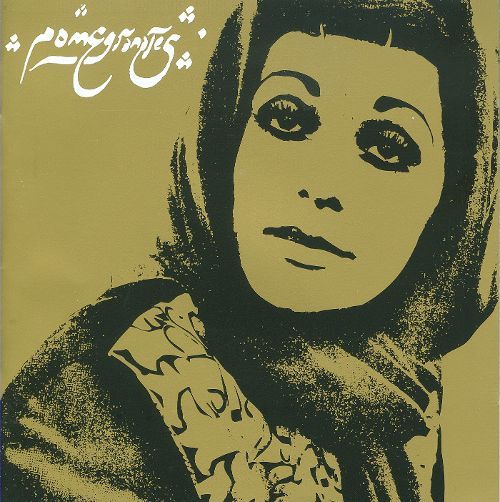
VARIOUS ARTISTS//POMEGRANATES: PERSIAN POP, FUNK, FOLK AND PSYCH OF THE 60S AND 70S (2009)
If even one person decides to listen to Pomegranates because of this here piece, writing it will have been worth it. Cataloguing the surprisingly vibrant music scene of the former nation of Persia (now Iran) in the ‘60s and ‘70s, Pomegranates is maybe the perfect compilation in that it’s full of total jams that cast a whole new light on a place whose music you might never check out otherwise. What makes the album so interesting is that it’s like a musical petri dish where you can here Eastern and Western musical ideas meeting and mutating and forming totally unique styles that are as cerebral and fascinating as they are fun and danceable. The real shame is that this scene died so shortly after the period from which this music was culled, due to changes in leadership and some seriously regressive social policies. Seriously though, I cannot stress this enough: enrich yourself, check Pomegranates out.
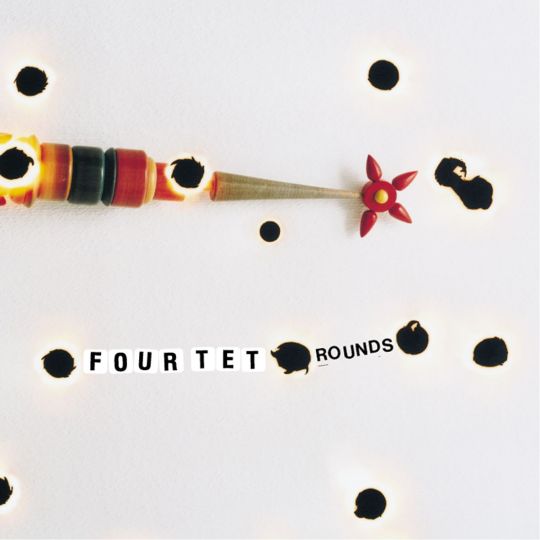
FOUR TET//ROUNDS (2003)
Rounds feels like the sophisticated older sibling to one of my favorite albums, Since I Left You by the Avalanches. Built with an Avalanche-ian approach, Rounds is composed entirely of samples, looping endlessly in and out of sync with each other in fascinating and compelling ways. Four Tet’s hip hop worship comes out of the woodwork occasionally in the form of hard-hitting drums, but I think the album is a lot more interesting the more formless it gets. My favorite track, And They Look Broken Hearted, shifts tectonically from sensual vibraphone noodling towards melancholy harp figures and nervous jazz drumming that anxiously builds and fizzles out in this totally random and stuttering way. I’d say the track never once repeats a measure, except part of the fun is that the track is barely made up of measures to begin with. The approach is way more based around loops, starting and ending based more off of emotional cues than accordance towards a rhythmic pattern or grid. It’s endlessly detailed, sexy, funny, and super chill. Great study music, great music period.

SIC ALPS//SIC ALPS (2012)
Sic Alps plays like garage rock’s attempt at something like the “Great American Novel,” full of poised sophistication, folksy ramblings, sincere declarations of love and laziness, and a lopsided sort of virtuoso approach that sees the band pulling in string sections and grand pianos as well as playing out their take on sun-bleached folk and, of course, psychedelic riffage. Taken all together, the record seems like an attempt to encompass the entire history of California guitar music at once; I think it’s a blast. Fans of guitar music will be able to find almost anything they care to look for in this thing: when I listen, I hear shades of Neil Young (Lazee Son), Credence (Moviehead), Wilco maybe (God Bless Her, I Miss Her), and even Radiohead on the excellent opener Glyphs and the album’s languid anticlimax, Rock Races. It’s basically a garage record, just with a ton of gravitas, which the record earns, and which is such a welcome change of pace within maybe the only genre that’s still more prolific (mostly to it’s detriment) than hip hop.
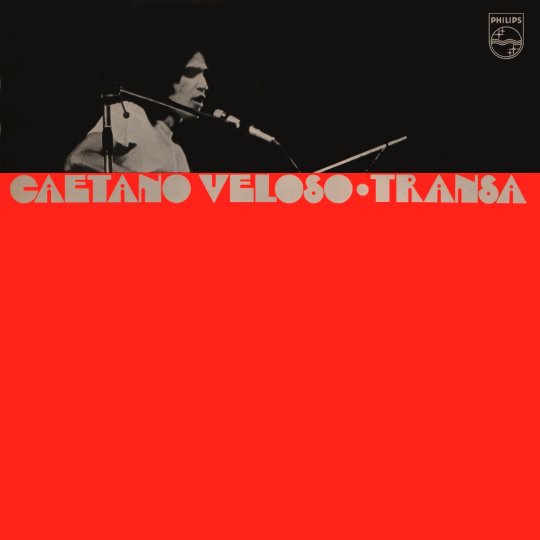
CAETANO VELOSO//TRANSA (1972)
Probably one of the best records within that notoriously short-lived world of Tropicalia, an extremely fun but inherently self-destructing kind of protest music in Brazil c. the ’70s that responded to the government’s isolationism with gleeful appropriation of Western music into already awesome Brazilian styles. Transa, however, is anything but gleeful. Written in exile, the album is a dark rumination on loneliness and politics that expertly works in standards like Mora Na Filosofia (a highlight) as well as hyper-Western balladry on tracks like You Don’t Know Me and closer Nostalgia. A snapshot of a fascinating period in history as interpreted by a great mind, Transa can almost establish its significance on context alone; the musicality and crazy cultural diffusion going on all over this record are what elevates it to a classic for me.
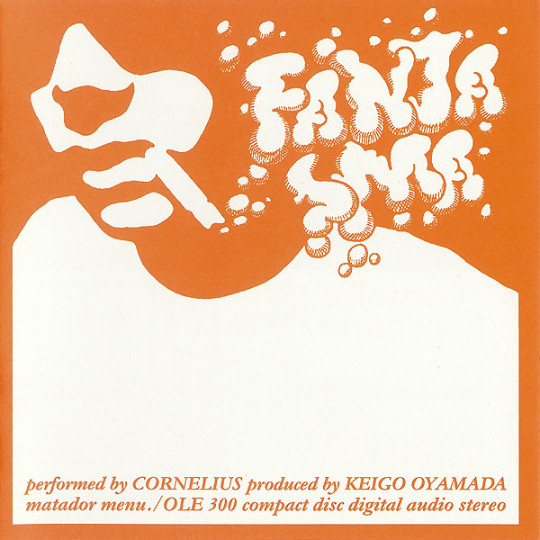
CORNELIUS//FANTASMA (1997)
Yet another sort of companion piece to Since I Left You, Fantasma proves that plunderphonics isn’t a dead end by joyously exploring its every nook and cranny and turning out some of the best music that little genre has to offer. Building songs around ideas that are like, Weird Al or They Might Be Giants level oddball, Cornelius makes music out of the sound of his own walking into the studio, text to speech generators, and occasionally out of ideas that date themselves a little (midi renditions of classical music, lol.) All of the comedic fanfare serves to make the moments of true musical beauty hit that much harder, like on early standout New Music Machine or the Apples In Stereo-featuring Chapter 8 - Seashore and Horizon. A highlight of the Japanese micro genre of Shibuya-Kei, Fantasma is an album that holds a remarkable amount of conceptual heft for how light it sounds, and that puts a smile on my face like almost no other record I know of.

DJ KRUSH//MILIGHT (1996)
In 2017, hip hop albums that truly feel like they’re even trying to sound definitive are few and far in between. The kids just aren’t interested in that kinda shit, and that attitude seems to be traveling upward as mainstays in rap continue to peddle out middling and unexceptional releases (OK, maybe I’m still salty about DAMN.) I think that’s all part of why I find myself so attracted to a lot of relatively older stuff, where hip hop is concerned. It isn’t so much a sonic preference as a political preference; I guess I’m just more of a fan of albums that seem to be trying to make big, serious statements. A running short list of such records would probably include oh, say, Aquemini, GKMC, Exmilitary, and DEFINITELY Milight. If that sort of definitive intent doesn’t reach you through the featured rap verses, mostly in Japanese, than let it hit you in the form of Krush’s perfectly sculpted instrumentals, which engulf and cradle spoken word messages from each featured rapper about their hopes for the future just as readily as they hold down incredible verses from a veritable who’s who of underground rappers and, curiously, Mos Def. The record is a masterclass in sampling and old school production as well as an incredible atmospheric and moody record that’s basically total ear candy with the perfect amount of substance and depth to keep it truly compelling.
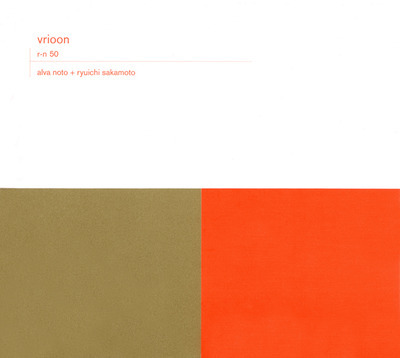
ALVA NOTO + RYUICHI SAKAMOTO/VRIOON (2002)
German electronic minimalist Alva Noto and Japanese virtuoso composer Ryuichi Sakamoto have a fascinating chemistry that, perhaps due to its subtlety, flies mostly under the radar; except, when it doesn’t, like when the two get commissioned to score The Revenant off the strength of incredible albums like Vrioon. Vrioon is basically a conceptual exercise, pairing Sakamoto’s piano improvisations with Noto’s infinitesimal manipulations and glitchy not-quite-beats. The two ingredients here compliment each other in unimaginably rewarding ways that continue to reveal themselves upon further listening - the ringing glitches of Uoon I anchor formless piano parts that subtly shift in increasingly disorienting ways, making for a remarkably serene yet engaging listening experience that I just can’t get enough of. Speaking from experience, this is the kind of music that would make any sunrise or sunset magical, and I can’t recommend it enough.

CAN//EGE BAMYASI (1972)
I’d listened to Tago Mago once or twice and was generally familiar with Can’s lofty reputation, but it didn’t start making sense to me until I listened to Ege Bamyasi. For all of the praise the band gets for being innovative and experimental, what’s so great about Bamyasi is the clear pop sensibility: most of these songs are short and sweet, and they press forward with a relentless momentum that brings the record a lot of immediacy and energy. Even when the band slows the tempo way down like on Sing Swan Song (which Kanye sampled for Drunk and Hot Girls, btw) or switches up the instrumentation on Spoon, everything sounds pretty unified and tight, and every song is really, really catchy.
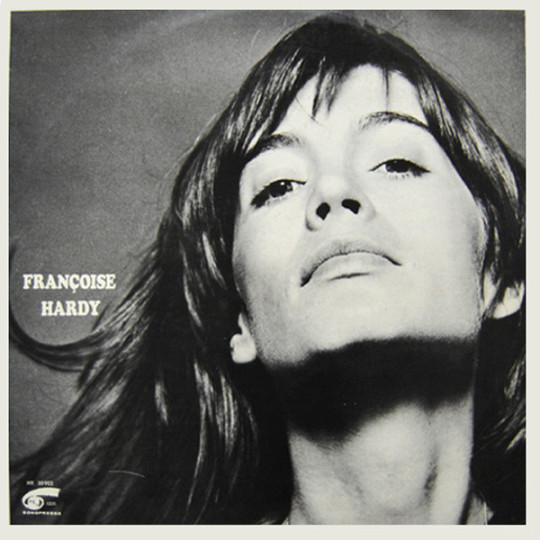
FRANÇOISE HARDY//LA QUESTION (1971)
One woman institution of French pop Françoise Hardy explores the styles of Bossa Nova on her eleventh (!) album, a super low key acoustic affair that rarely has more than a thing or two going on at once. Built around cycling acoustic guitar figures occasionally supplemented by strings and bass, the album gives Hardy a lot of room to establish her vocal presence, which she does super effectively. The minimalism of the record makes it sound timeless, and the arrangements are cinematic and lush and sexy but also super intimate and tiny, all at once. Needless to say, La Question a pretty striking record.
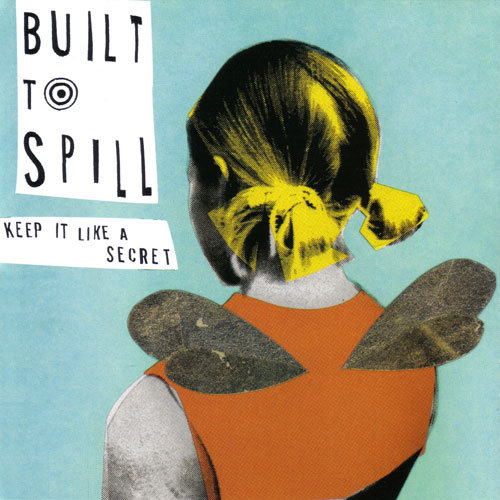
BUILT TO SPILL//KEEP IT LIKE A SECRET (1999)
I’m not gonna be the guy that tries to figure out what it means, but no one can deny that “indie” doesn’t mean the same thing now as it did in ’99 when Keep It Like A Secret dropped. In 2017, it’s acceptable to put the modifier R&B after indie, artists like Father John Misty are making plays for the sex symbol status held in years past by mainstays of white-bread rock and roll, and most indie fans are as readily courted by hip hop or electronic music as they are “indie” (I stress, none of this is a bad thing.) Indie in ’99 was a way more bookish, cloistered, specific sort of scene, and Keep It Like A Secret really exemplifies that vibe to me. A basically pretty sexless record built around hyper-literate lyrics about the meaning of life and personal shortcomings, Keep It is so endearingly low-key that falling for the record mostly just feels like making a friend with whom you can speak in an intimate and esoteric way. The guitars are angular and math-y in some places, and awesome and anthemic in others, like on ripping opener The Plan and personal favorite Temporarily Blind. Among other things, Keep It Like A Secret sounds like the perfect soundtrack to the charming and twee indie (ha) movie most people see their life as nowadays; well, I don’t know, maybe that’s just me.

YO LA TENGO//I CAN HEAR THE HEART BEATING AS ONE (1997)
Keep It Like A Secret came out two years after this behemoth of a record - and yet somehow, I still feel like I Can Feel The Heart Beating As One as maybe the first major stepping stone between the indie of the ‘90s and the indie of today. The major innovation? This is lover’s music, played by actual married couple Georgia Hubley and Ira Kaplan. Whether they’re summarizing the entire history of shoegaze into a single song or covering the Beach Boys, Yo La Tengo always keep the vibe sleepy, chilled out, and super seductive, and god damn, it just works. Those who know me might find this hard to believe, I always find that I have the least to say about the things I love the most. I Can Feel The Heart Beating As One is one of those things. So much of what makes this album special is how intimate and warm it feels, qualities I could never communicate as well as the music itself does. Please, listen to it. ASAP.
1 note
·
View note
Text
TOP ALBUMS OF 2017 (SO FAR)
It’s been a crazy year.. But also, somehow, one of the best years for music I think I might have ever been alive for! Here are some of my favorite albums of this year, lovingly catalogued and described in hopes that others enjoy these records as much as I have and continue to. Enjoy!
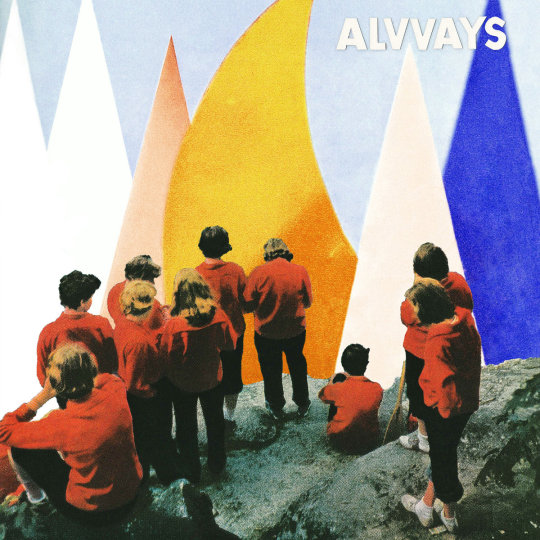
20. Alvvays - Antisocialites - If European stalwarts of indie like Chromatics and Pheonix can’t be counted on to bring their twee, vaguely filmic charm to 2017 (sorry, Tí Amo,) well, at least we have Alvvays. Coloring the totally played out dream-pop formula with flavors of shoegaze, punk, and post-punk, Alvvays bring a shit ton of personality to a genre that, most of the time, projects aloof disinterest; needless to say, it’s a welcome change of pace. Furthermore, there’s some serious songwriting muscle on display here, and every song seems even catchier than the last: from the washed out, dreamy In Undertow all the way to the longing closer, Forget About Life, Antisocialites remains a fun, engaging and memorable listen that I honestly defy anyone not to enjoy - and it has some of the best singles of the year in tracks like Dreams Tonite and the previously mentioned In Undertow.
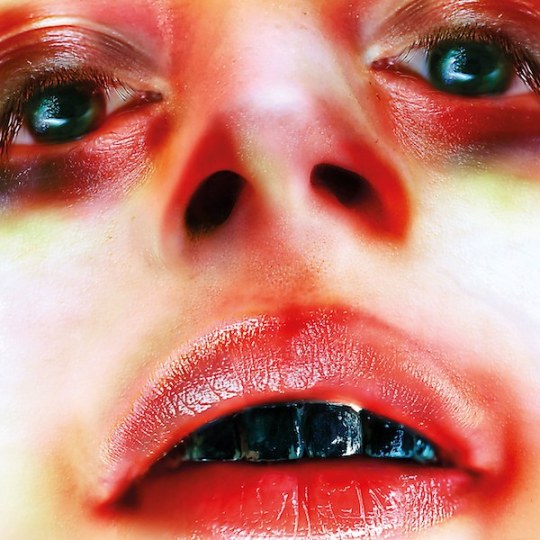
19. Arca - Arca - There’s always been a sort of totally alien charm to the twisted and avant-garde electronic music that Alejandro Ghersi makes as Arca - on his latest self-titled record, everything that entices me about Arca’s music is turned up to 11 with the inclusion of his pained, heart wrenching vocals. Despite being sung entirely in nakedly emotional fits of his native Spanish, Arca seems somehow to reveal even less about himself than he did on his previous, instrumental albums, shrouding everything in a vague, mysterious aura on tracks like Reverie, Anoche, and (my by-and-far favorite) Sin Rumbo. Perhaps one of the most unique records to hit the mainstream this year, Arca is as good an introduction to this guy as any, and a great album.
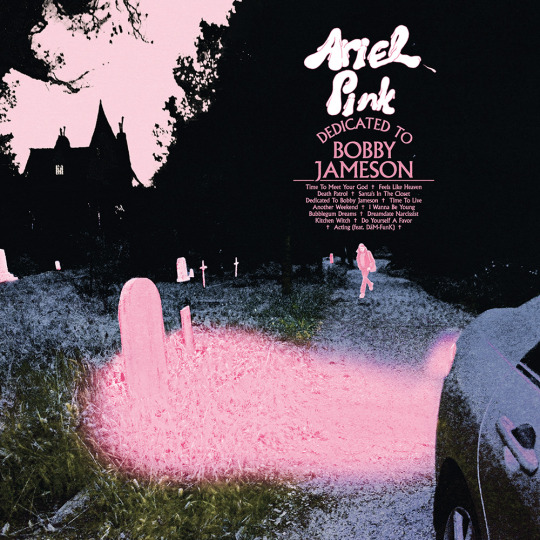
18. Ariel Pink - Dedicated to Bobby Jameson - Basically another great weirdo-pop record from the reigning king of weirdo-pop. Bobby Jameson is effortlessly funny, sexy, bizarre, and touching, even at its most gloriously lo-fi and porny moments (Death Patrol, anyone?) The instrumental palette expands and contracts throughout the record, with some genuinely affecting acoustic moments and some batshit sound effects elsewhere that evoke the weirder moments of 2014’s also excellent Pom Pom. Always different, always the same.
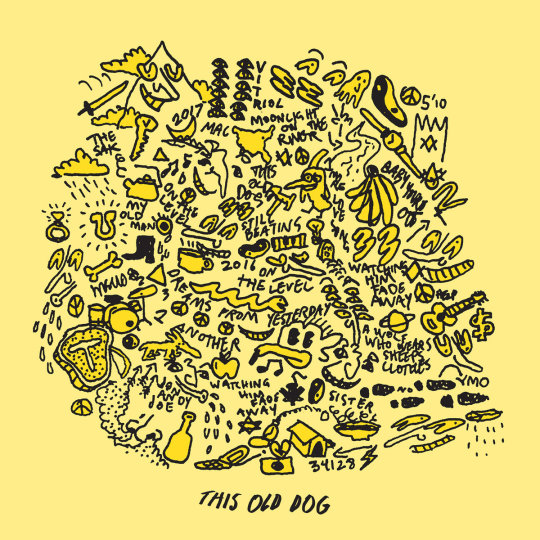
17. Mac Demarco - This Old Dog - Leave it to a goofball like Mac Demarco to make an album that’s simultaneously the saddest thing he’s ever done, and the easiest record to chill out to of the year. Seriously, This Old Dog can be gut wrenching, especially when Mac is coming to terms with his broken family dynamics on tracks like Sister and Moonlight on the River. But Mac’s penchant for endlessly breezy riffs is all over this thing, making tracks like Still Beating, This Old Dog, and One More Love Song some incredibly easy and fun songs to listen to, in spite of the heavy subject matter. This Old Dog is an album I’ve lived comfortably with since its release because it’s so catchy, listenable and light, but still manages to contain multitudes about the guy behind these pained songs.

16. Dirty Projectors - Dirty Projectors - To the extent that Dirty Projectors mastermind Dave Longstreth can be viewed as a sort of elder statesman of the modern indie-landscape (ushering in R&B and pop worship, introducing Ezra Koenig and Rostam Batmanglij, constantly participating in the critical dialog surrounding his art and the art of the others), I think his new album Dirty Projectors can be seen as a sort of comment on the landscape he’s helped to shape, as well as the maybe too personal breakup album we all know it as. Dirty Projectors is a primer on white-boy R&B presented as 9 gloriously overstuffed tone poems, each obsessed with some aspect of his failed relationship with former Dirty Projector Amber Coffman. Up In Hudson is an autotune epic full of joyous horns and harmonies, Cool Your Heart is an awesome cacophony of polyrhythms anchored by D∆WN’s levelheaded chorus, and centerpiece Little Bubble is a baroque masterpiece that’s understated and subtle in all the right ways - a pleasant break from Longstreth’s breathless oversharing everywhere else on the album. If FJM wasn’t so deft at manipulating the journalists, this would’ve been the event album of the year; for Amber’s sake, I’m glad it isn’t.

15. Father John Misty - Pure Comedy - Shave your beard, ditch the funny-guy schtick, and write your fatalist opus: at least, that’s how Father John Misty owned the first half of the year, deftly playing the soundbite game and keeping his name in everyone’s mouth until the fabled album finally arrived. Fortunately, the music holds up for the most part, even if Pure Comedy is a little heavy on the ballads and could've used some of I Love You, Honeybear’s variety. Still, songs like Smoochie, The Ballad of the Dying Man, and A Bigger Paper Bag are stunners, and the analog ear candy production all over this album is some of the best I’ve heard this year. I guess my only gripe is that 2017 is a bummer enough already without Father John Misty telling us how screwed we are… Maybe take the title a little more literally for Pure Comedy 2?

14. Gabriel Garzón-Montano - Jardín - Gabriel Garzón-Montano, the guy that Drake sampled for sleeper-hit Jungle, signed with beat-music giant Stones Throw (home of hip-hop institutions like Madlib, Knxwledge, and countless others) to release Jardín - turns out, that odd couple was perfectly paired. Jardín is full of these excellent, miniature masterclasses in beatmaking, like the skittering percussion of “Long Ears” or the funk swagger of “Crawl.” Still, the record is pretty far from being some low key hip-hop worship thing, and acts pretty often as a vehicle for Garzón-Montano’s ambitious arrangements (“Fruitflies,” “Trial”) and vocal performances (“Cantiga,” “Sour Mango”), which range from old school R&B to almost classically baroque. Throughout, the instrumental palette is tasteful and restrained, and everything is overcome by a sexy, nocturnal vibe that just sounds great. I’m not sure what more I could possibly want from a record as generous as Jardín.

13. Japanese Breakfast - Soft Sounds From Another Planet - Something of a companion to 2017’s other great dream pop album, Antisocialites, Soft Sounds From Another Planet ditches that record’s lighthearted romanticism in favor of blistering political intensity and a wistful sort of sadness that evokes the crooners of the sixties on cuts like Boyish and ’Til Death. Taking influence from towering figures like Bradford Cox, Michelle Zauner crafts a work entirely her own here, weaving in strokes of shoegaze, chamber pop, and even an almost disco influenced synth-pop moment on standout The Machinist. Furthermore, there’s a really compelling interplay lyrically between songs that seem to assert Zauner’s efficacy as a woman (Diving Woman, the title track) with stories about the men who try to tear that efficacy down on tracks like Boyish and Road Head. Zauner’s political subtext on this record is definitely more complicated than I could understand or attempt to explain, but it almost doesn’t matter: with Soft Sounds, Japanese Breakfast weaves that social dynamic into a tapestry of beautiful music and gripping lyricism that will continue to impress and compel me for a long time.

12. JAY Z - 4:44 - In a decidedly more minor way, JAY Z’s 4:44 feels like his Dark Twisted Fantasy moment: in a time of personal turmoil played out on a grand public scale, the misunderstood artist retreats into himself and blows an unimaginable amount of money crafting an album too good to be ignored by the hateful masses. Luckily, the similarities end there, and 4:44 stays a low-key affair that plays impressively to Jay’s skills as both a rapper and simply as a magnetic personality, even if his almost spoken word delivery here often blurs the lines between those two things. All over the place, 4:44 is a rambling and opulent affair, full of expensive samples and rumination on internal conflicts of the ludicrously wealthy; it’s certainly to JAY Z’s credit that he can somehow keep that entertaining.

11. Kelly Lee Owens - Kelly Lee Owens - It’s always impressive when a record as slight and barely there as Kelly Lee Owens’ self titled debut can make an impression as strong as it did on me; even more impressive is the fact that this is her first record. Genre signifiers like “minimal techno” are frequently thrown towards skeletal, extended beats adorned only with the simplest melodies - you’ll find none of that on Kelly Lee Owens, a decidedly minimal-techno record that manages still to be incredibly lush and intoxicating. Whether Owens is highlighting the unique aspects of her collaborators styles as on Anxi with Jenny Hval or showcasing her own voice as she does throughout much of the record, Owens remains immaculately perched at the nexus between seductive and subtle - I haven’t heard anyone else operating so assuredly in this lane at all in 2017.
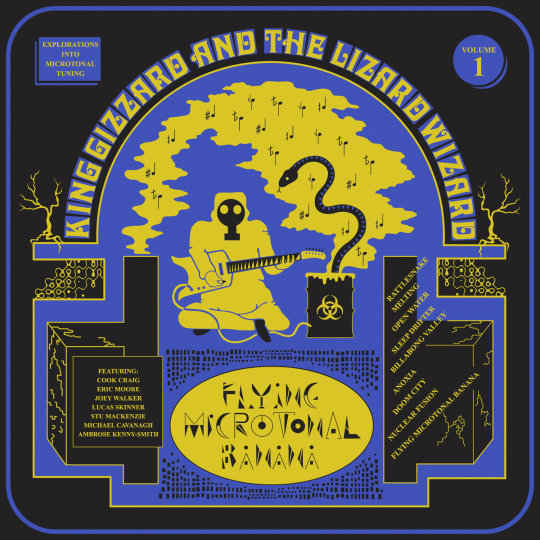
10. King Gizzard and the Lizard Wizard - Flying Microtonal Banana - Far less jokey than the too-heavy Murder of the Universe and far less ephemeral than the barely there Sketches of Brunswick East, King Gizzard really nailed it on LP1 of 2017 with Flying Microtonal Banana. Shaking up their usually spartan Kraut-punk grooves with a wealth of added Eastern instrumentation and a whole different approach to tuning that required custom instruments for every band member, FMB sounds like a band intent on exploring every possible permutation of their sound; as luck would have it, microtonal is a good look for them, and the record is basically bangers from front to back. From the off-tune crooning of Sleep Drifter to the strangely danceable Nuclear Fusion, King Gizz really take a successful sonic detour on this one while still coming through with a wealth of strong material. Let’s hope things head back in that direction for LP’s 4 and 5 before year’s end.

9. LCD Soundsystem - American Dream - LCD Soundsystem is back, and everything they represented in their heyday is even more out of style now than it was when they broke up a few years ago. So why is American Dream so goddamn good? For me, it comes down to the fact that past the cloying pretension (again, very out of style in 2017) and attempted rock-star aloofness, James Murphy is a pretty passionate dude, and that soft side translates a lot more often than not on this new record. Far more low-key than the bombast of This Is Happening, American Dream sets the bar a few inches lower and then leaps over it with stunners like Oh Baby, Black Screen, and the defeatist funeral march of the title track. The righteous anger is a little less believable now that James Murphy has personally screwed his fans over, which unfortunately taints the supposedly epic How Do You Sleep? with the sour taste of a one sided dialogue where you know you’re getting an asshole’s side of the story. Still, American Dream is a very good LCD Soundsystem record, and at the very least earns its respect in the pantheon of 2017 releases on quality, if lacking in narrative thrust.
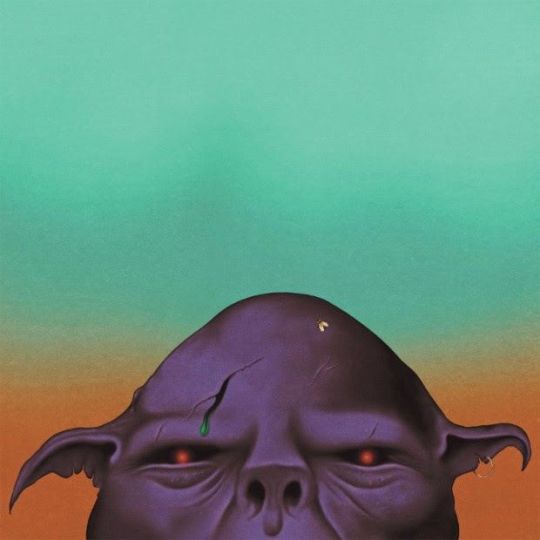
8. Oh Sees - Orc - John Dwyer is living proof that the troubadour still has a future in the financial black hole that is this music industry, and maybe one of the last DIY guys to break through and really become an institution in rock music; it’s telling that the man can count fucking Henry Rollins as one of his biggest fans. Approaching the 20 year anniversary of his longest standing musical project, Dwyer hunkered down with producer Ty Segall (!), a bassist, and two drummers to record Orc, a late period masterpiece that streamlines the best things about Oh See’s recent sonic direction into a sometimes blissed out, sometimes metal-leaning psych opus that’s weird and fun and exciting in all the right ways. Orc is a Spartan album with little to no filler and an almost monomaniacal focus on running the ten tracks that make this album up into the ground; Keys to the Castle is an eight minute epic that gives up on punk a third of the way in for heavenly keys, and Paranoise, well, lives up to its name. Anyone who claims that rock isn't exciting or viable anymore should be directed to this record with haste - John Dwyer presents a pretty convincing counter with this one.

7. Perfume Genius - No Shape - Perfume Genius’ No Shape is an incredibly dense and rewarding album: rich in sound, rich in feeling, rich in lyrical and instrumental complexity, it strikes me as an album that’s meant to be lived with, and that reveals itself over the multiple listens necessary to pick up on all the little quirks hidden throughout by mastermind Mike Hadreas. Luckily, none of what I just said precludes No Shape from also being the most immediately gratifying and exciting release yet from Perfume Genius, and maybe anyone else this year, too. The first two songs are barrages of massive indie guitars and anthemic melodies, and from there, No Shape settles into a stride of incredible song after incredible song that continuously demonstrate Hadreas’ incredible range and capacity for evoking emotion. The fact that it’s easily the best-produced record I’ve heard this year is just icing on the cake.
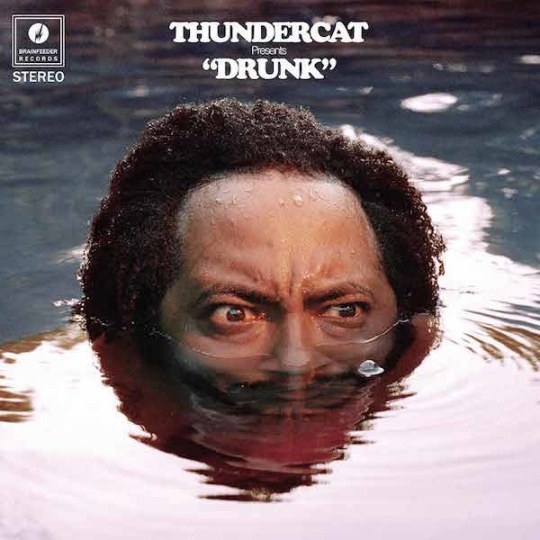
6. Thundercat - Drunk - The glorious shitshow of an album that this glorious shitshow of a year deserves - and I mean that in the best possible way. While other artists have grappled with the craziness of the year with unfailing pretension (Father John Misty) or with intensely personal storytelling (Japanese Breakfast,) Thundercat seems to be coping in the same way the rest of us are - disappearing down a “rabbit ho” of drunken hilarity and making light of his occasionally destructive personality. Drunk is just as much of a showcase for Thundercat’s virtuosic bass skills as his overall funniness, though, and hyperactive bass workouts on tracks like Captain Stupido and Tokyo remind of his skills just as chill out moments like Walk On By and Drink Dat remind of his pop sensibilities. Thundercat stood behind the best of 2016’s music on the merits of his musicianship alone; with his affable personality in the fore, it’s no surprise how easily his solo work is beginning to connect on its own.
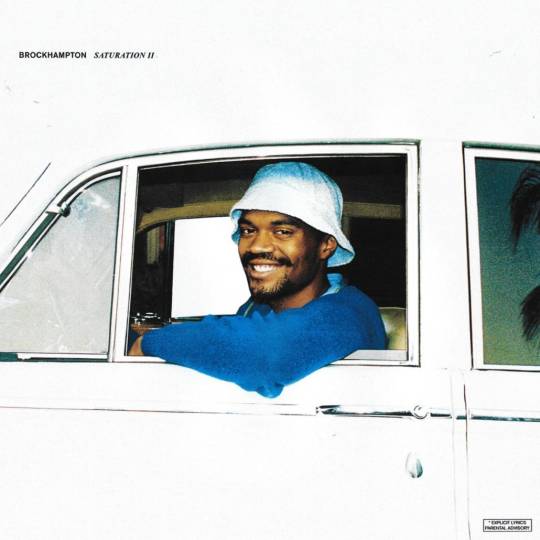
5. Brockhampton - Saturation I/Saturation II - Outclassing heavyweights like Drake, JAY-Z, and Kendrick Lamar, Brockhampton’s exciting debut and follow up Saturation (and Saturation II )are a reminder to me of why I fell in love with hip-hop in the first place: these records are a document of a bunch of kids willing the coolest shit they can think of into existence and then turning themselves into rockstars with whatever they came up with. That’s Kanye’s story, that’s Chance’s story, and now that torch is getting snatched by the willing and able guys behind America’s latest and greatest Boy Band. Fortunately, unlike all these heavyweights that seemed to get stuck in a rut this year, Brockhampton still has something to prove; let’s hope that takes awhile.
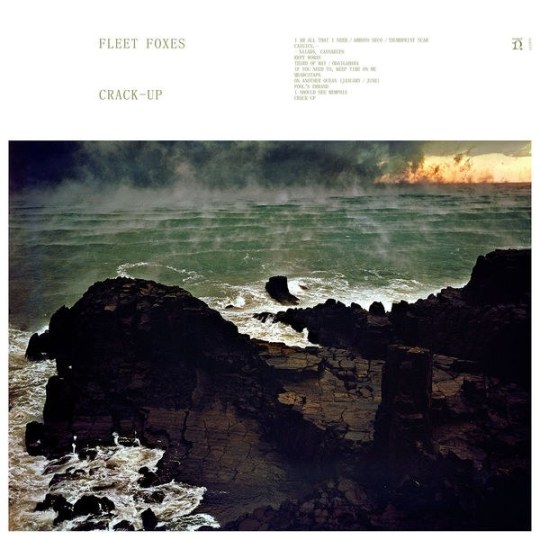
4. Fleet Foxes - Crack Up - Unlike FJM, Fleet Foxes frontman Robin Pecknold hasn’t given up on the world quite yet - that optimism, along with some of the most creative songwriting, production, and instrumentation I’ve heard all year, are what make Crack Up so special. The album has this sweeping, almost baroque quality to it; it’s more an album of suites and movements than individual tracks (that the lead single is an eight minute, two part behemoth speaks to this,) and Pecknold’s songwriting has finely begun to match the stately and massive sound his backing band has always been capable of making. Still, what keeps me coming back are the moments of almost religious stillness Pecknold conjures up on acoustic numbers like “Kept Woman”, “If You Need To, Keep Time On Me,” and “I Should See Memphis.” Crack-Up truly is a stunning album in every sense of the word.
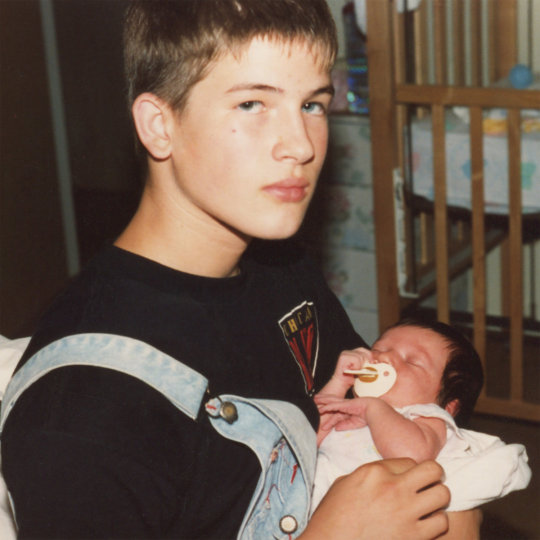
3. Big Thief - Capacity - I keep coming back to this album because Adrianne Lenker filled it with what are potentially the best standalone songs of the year; if you care about guitar music at all, your literal favorite song of the year might end up being something off of Capacity. From the haunting narratives of songs like Watering and Coma to the pop-classicist bent of tracks like Great White Shark and Haley, this album is chock full of incredibly strong chord progressions and melodies that continue to reveal deeper beauty to me as the year goes on. This album is really something special.
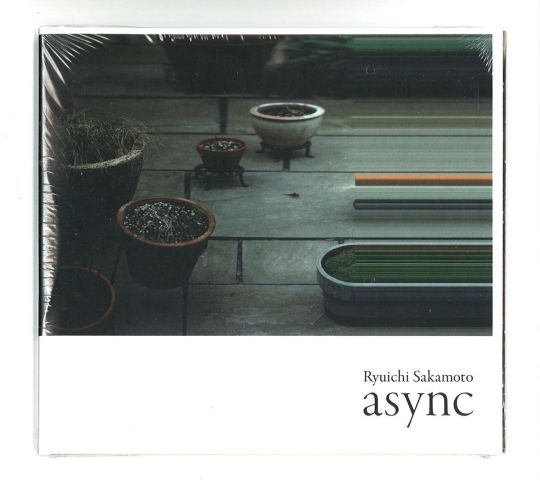
2. Ryuichi Sakamoto - async - In this most fast paced and dizzying year, Oscar and Grammy winning composer Ryuichi Sakamoto cheated death at the hands of serious throat cancer and came out of retirement to produce a slow, languid album that rivals some of his best film scores (which include classics like Merry Christmas Mr. Lawrence and The Revenant) with async. Drunk on every banal detail of the life he nearly lost, Sakamoto crafts a serene album full of ambient twists and turns, spoken word passages reciting cosmic poetry (courtesy at one point of Andrei Tarkovsky’s father), and the heart-wrenching piano work this guy seems to be able to do in his sleep. Everything about this album is incredibly masterful in its depth and detail; the sound design of some of the album’s looser moments are stunning, and piano compositions like ubi and the remarkable andata are some of my favorite tracks of the year. Sakamoto really is an international treasure, and in async he gives us a beautiful celebration of life viewed through the lens of his trailblazing career. We should all be grateful.
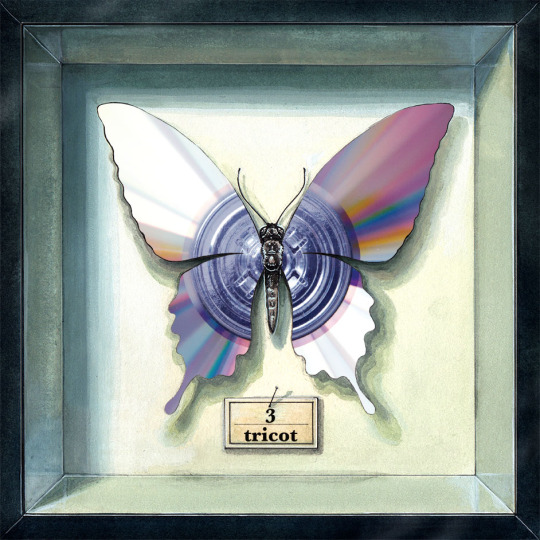
1. Tricot - 3 - I don’t know if I’ve heard a more fun, electrifying and emotionally potent record as Tricot’s 3 all year, and the lyrics are entirely in Japanese; hopefully that alone speaks to the skill of these 3 gifted women as writers, instrumentalists and vocalists. Their trick for connecting emotionally across the language barrier seems to be some combination of brute force (these tracks are performed at blistering tempos, in fits and starts of total instrumental acrobatics) and incredibly emotional vocals that communicate more than enough on sound alone - these girls sound like they’re exorcizing demons out of their very souls, they play and sing so goddamned hard. It doesn’t hurt that the writing is incredible, full of total jams like the one-two-three punch that opens the record or the totally anthemic Munasawagi. Who would’ve guessed that the pop record of the year might just be a math-rock album by a Japanese girl-group?
HONORABLE MENTIONS:
(Sandy) Alex G - Rocket
Sampha - Process
Spoon - Hot Thoughts
Tyler, The Creator - Flower Boy
Joey Bada$$ - All Amerikkkan Bada$$
The Murlocs - Old Locomotive
JLin - Black Origami
Beach Fossils - Somersault
Jay Som - Everybody Works
Cigarettes After Sex - S/T
Laurel Halo - Dust
Slowdive - S/T
Ty Segall - S/T
Everything Everything - A Fever Dream
Mount Eerie - A Crow Looked At Me
Black Lips - Satan’s Graffiti or God’s Art?
Milo - Who Told You To Think?!?!!???
Oneohtrix Point Never - Good Time (OST)
Grizzly Bear - Painted Ruins
Nmesh - Pharma
#music reviews#tricot#fleet foxes#ryuichi sakamoto#big thief#father john misty#thundercat#brockhampton#jay z#ariel pink#alvvays#arca#perfume genius#oh sees#lcd soundsystem#kelly lee owens#king gizzard and the lizard wizard#japanese breakfast#gabriel garzon-montano#dirty projectors#mac demarco#best albums of 2017
5 notes
·
View notes
Text
VIC MENSA/THE AUTOBIOGRAPHY REVIEW

It’s been four years since Vic Mensa broke out for real along with Chance the Rapper and the rest of the Save Money crew in 2013, which begs the question: where does longevity stem from in 2017 hip-hop?
In Vic’s case, it certainly didn’t have to come from a massive discography or a even big single. A scattershot mixtape in 2013, a couple singles, and a recent EP constitute Vic’s output in the four years between when his career started, and his debut, The Autobiography, dropped. So, what then? For me, it always seemed to me as though Vic was keeping his name in the conversion through his seemingly endless willingness to interject into almost any cultural dialog, taking hard stances on progressive political issues as well as more minor debates within rap culture with equal intensity. Put simply: it never felt like Vic Mensa was solely an advocate of himself, which is an undeniably en vogue attitude in hop hop. Fortunately, that “bigger-picture” mentality translates to the new music, at least mostly: The Autobiography is a mixed bag, but commendably individualistic, for better and for worse.
For better: Vic is another recent acolyte of producer No I.D., who has most recently executive produced excellent albums from JAY-Z and Vince Staples, and also less recently laid out the blueprint for Kanye’s early winning production strategies and produced some of the biggest hits of late nineties/early two-thousands rap. No I.D.’s executive production credit generally guarantees quality but also crucially keeps from locking artists to a specific sound or formula: The Autobiography is about as different from 4:44 as 4:44 was from Summertime ’06. The sonics on The Autobiography remind me first and foremost of Dr. Dre’s most recent, Compton: it’s hyper glitzy, full of expensive sounding samples, blown out drums, and choirs of layered and auto-tuned vocal harmonies courtesy sometimes of Vic, and sometimes of the album’s many guest vocalists (Ty Dolls $ign, Pharrell, etc.) Even better than the opulent production is the actual, honest to god personality that comes through on every song on The Autobiography, even the clunkers. Mensa seems to be making an attempt to subvert or at the very least buck all of the 2017 rapper platitudes that populate a lot of the debuts of this year in favor of trying to produce a more authentic self portrait (hence the name,) warts and all. Furthermore, that devotion to an honest portrayal of self results in some seriously powerful stuff all over this album: the last time I heard something as caustic and self loathing as “Wings” had to be “u” off of Kendrick’s monumental To Pimp A Butterfly, and tracks like “Heaven on Earth” and “Memories On 47th St.” possess an autobiographical (ha!) flair that reminded me of the most introspective moments of Acid Rap or one of the better Tyler, the Creator albums. I’m drawing these comparisons not because Vic sounds like he’s imitating these artists, but more to try and position him in that middle/upper echelon of rappers where I think he belongs at the very least - this may be Vic’s debut, but he’s been around too long to get lumped in with the new guys.
For worse: what tends to manifest usually in The Autobiography as a unique personality and a willingness to separate himself from his peers manifests at other times as a persona that’s cringey at best, offensive at worst. It’s the same sort of issue I’ve had with rappers like Ab-Soul, Childish Gambino, and others for awhile now: these guys, Vic unfortunately included, seem to think they’re “saving hip-hop,” and, for some reason, a lot of really bad lyrics tend to slip through the cracks with those types. The just-cringey stuff includes lines about (not joking) smoking weed with Kurt Cobain in heaven, who, of course, loves Vic Mensa’s music, among other corny bars that sound like Because The Internet leftovers. I’m also not entirely into the song “Down For Some Ignorance,” which attempts a trick Ab-Soul tried to pull on his really bad 2013 album These Days: the ignorant trap banger that’s also a heavy handed critique of trap bangers - I guess how you feel about this song will largely depend on how smart you think that is. However, those missteps are forgivable compared to straight up offensively bad songs like “Coffee and Cigarettes,” which is just pure cringe. It’s this sort of indietronica ballad about a girl he loved when he was younger that isn’t just really awkward and mean towards this girl, it’s also really poorly performed; I don’t think anyone wanted 5 minutes of Vic’s attempt falsetto crooning, let alone about how angry he is about a girl that didn’t want to be with him. There’s also an otherwise awesome song (”Homewrecker”) that I’d listen to a lot more, were it not for the song being about how Vic thinks his girlfriend is the bad guy for getting angry when he cheats. For all of the progressive political activist posturing Vic Mensa does on this album and in his public life, his relationship with women on The Autobiography is seriously kind of questionable, is all I’m saying.
So Vic Mensa finally puts himself out there to be judged by the public on The Autobiography. The impression he left on me is that he’s a smart guy with a good ear and voice that if trained, might even sound better than Donald Glover’s singing voice. The issue is, I don't know if he’s smart enough (artistically speaking, of course) to avoid the missteps of other rappers trying to occupy this lane (cringey bars, savior complex, bad singing); on this album, unfortunately, he made a lot of those mistakes. Still, I don’t see myself writing Vic Mensa off, and I don't think others should either. For all of his time spent in the public eye, he’s clearly done a lot to develop his artistry and I don’t see him slowing down on that front any time soon - I just hope he streamlines his efforts towards what worked on The Autobiography and sheds the cringe material. (GOOD)
SIDE NOTE: Does anyone else think it’s awesome that Vic used the same font for his cover that Radiohead used for The Bends?
0 notes
Text
JULY REVIEWS: AMINÉ, ARCADE FIRE, AVEY TARE, JAPANESE BREAKFAST

AMINÉ/GOOD FOR YOU, AND THE TYRANNY OF THE QUAVO FEATURE
How many variations on the same ideas and themes can the new faces of hip-hop in 2017 release before they find themselves retreading old ground creatively? Maybe this will come off grumpy or nostalgic, but I remember a time when major releases in hip hop were portraits of artists teeming with ideas and opinions that they could barely fit into their verses. I’m not talking about ’96 - I’m talking about fucking 2013. Remember when Acid Rap, Yeezus, Born Sinner, Watching Movies With The Sound Off, Doris, Long Live A$AP, Wolf, Old, Trap Lord, and let’s just throw in Nothing Was The Same all came out in the same year? Every single one of those albums represented to me at least an attempt at differentiation from the pack, with each album I mentioned (and a whole bunch of others) being pretty unique stylistically and having some sort of unique artistic statement to make. (Note: I don’t mean to imply that I think 2013 or any other year was some perfect year for hip hop, and really didn’t like Eminem, Jay-Z, and Pusha T’s records from that year; I’m simply using it to illustrate a larger point about the rap landscape in 2017 versus just a few short years ago.)
Now, since we’re discussing Aminé’s debut, let’s take a look at debuts of 2013 vs. debut albums in 2017: Chance the Rapper (discounting 10-Day) came out with a breathlessly excited record overstuffed with influences ranging from juke to gospel that was produced almost entirely in house by a team of incredible producers. Earl Sweatshirt, bless his heart, took Odd Future’s adversarial approach a step further with an album that rejected the mainstream at every turn and instead showcased verses from his friends, full of adolescent provocations. Big rap debuts in 2017 have, at least to me, been a lot harder to distinguish from one another, and believe me, I know just how gross and grumpy and uncool that sounds. Whether it’s Lil Yachty stumbling over beats from the big Atlanta names (Metro Boomin, TM88, etc) with a pop exception (Diplo), 21 Savage stumbling over beats from the big Atlanta names with an occasional left-turn (Jake One), or, now, unfortunately, Aminé doing more or less the same (albeit with production assists from admittedly exciting names like Malay and Frank Dukes), I can’t help but feel like these new guys (less notable, but similar cases include Post Malone and the collected works of XXXTentacion; notable exceptions include D.R.A.M., and, by technicality, Brockhampton, who aren't really rapping about anything new, but are commendably doing everything in house) are painting themselves into a corner by focusing on the meme-iest qualities of their music and not on the ideas or unique approaches that put their peers on the map in the first place.
I don’t want to be unfair to Aminé here. This is a guy who put himself on the map with a pretty strong indie sensibility, impeccable taste, and an ear for catchy hooks (all of which figured big in the success of his breakout single, “Caroline.”) I feel for this guy, and anyone who’s paying attention can tell he’s taking a stab at cementing himself as a serious name in hip hop: he’s doing a newspaper at the release parties in the big cities á la Frank Ocean’s Boys Don’t Cry magazine, and refers to himself as a student of André at least once on Good For You (he wishes.) And, I definitely hear at least an attempt at conveying all of the unique aspects of Aminé’s artistic personality on Good For You. Unfortunately, the indie cred is shot at and missed on the Girlpool featuring “Hero,” which fails for me because, I don’t know, bringing in a feminist folk punk band would feel like a more genuine move if the next song wasn't a generic exercise in “I can’t trust these hoes” on “Spice Girl,” a song that itself doesn’t feel particularly genuine about its subject in the first place. Frankly, it’s within that dichotomy, of making attempts at crossing over and developing inroads with other audiences versus shamelessly pandering to the /r/hiphopheads crowd, that illustrates exactly what doesn't work for me about Good For You: Aminé sacrifices so much of the unique, charming personality that made “Caroline” exciting to deliver so much more of the same shit that was getting boring to me last year when everyone was still obsessed with Future and Young Thug (and, as someone who honest to god likes those artists, it doesn’t feel good to say that).
Seriously, I can’t imagine how contrarian this review must come off, especially considered in context with the increasingly entrenched meme status of Aminé, 21, and whoever else I might have shit on in the process of writing this review. But the major label debut’s of 21 Savage and Lil Yachty did not sell well, like at all, and who’s to say how well Good For You will end up doing for Aminé; still, I wish him the fullest financial and artistic success, and I think every successful artist in the financial sinkhole that is the 2017 music industry is a miracle. I just feel like the time has come to question the sustainability of the model: tweet worthy one-liners, Quavo features, and throwaway beats from Metro Boomin seem to be doing less and less in terms of providing new hip-hop artists in 2017 any sort of commercial success or artistic longevity. And as much as I hate to say it, for all of its commendable qualities, Good For You to me is an undeniably homogenous record that loses too much of its personality in the quest to be a hit in the model that Future established after his incredible mixtape run in 2014: heavy on mantra-like hooks, almost monotonously consistent sonically, and almost totally bankrupt of lyrical ideas beyond the bare minimum (to quote Hov, money cash hoes). I just wonder if it ever occurred to Aminé that Caroline blew up precisely because it didn't sound like anyone else could’ve done it.
What do you guys think of Good For You, and the hip-hop landscape of 2017 on the whole? Does everyone sound the same? Are we settling for less in the name of hyper-modernity? Am I totally full of shit? I wouldn’t be entirely surprised, but, hey, who knows. Are you guys getting more out of this record than I am? I’m looking forward to learning more, but in the mean time, I hope Aminé and anyone else hoping to break out in rap is taking some time to figure out what they can do to set themselves apart from the pack and make a truly unique statement. (unfortunately, NOT VERY GOOD)
Great Songs: STFU, Sundays, HeebieJeebies (feat. Kehlani)
ARCADE FIRE/EVERYTHING NOW

Everything Now, Arcade Fire’s followup to their 2014 album Reflektor, ditches the urgency of that last record, which is a blessing and a curse. I didn’t necessarily want to hear a rehash of the sonics and lyrical concepts of Reflektor, but Everything Now is an admittedly solid addition to the Arcade Fire discography, and it fortuitously corrects the mistake of the last record by being way less overt about attempts to replicate the most anthemic moments of Funeral and The Suburbs. The workaround w/r/t that anthem thing is that Arcade Fire is pretending to be way too mired down in the “everything now” sensory overload concept (like The Suburbs, this album has three title tracks and two “Infinite Content(s),” and the genuinely catchy tracks are very short) to focus on trying to write another “Wake Up.” Of course, like most other Arcade Fire albums, Everything Now is really about paying lip service to the concept (over and over again), more invoking the idea than ever engaging with it, and then letting the listener fill in the blanks. Sometimes, it works: two-part centerpiece “Infinite Content” is awesome (the second one might be my favorite Arcade Fire song in years), and lines evoking “clouds of Ambien” on “Put Your Money On Me” are almost affecting enough to distract from how cheesy that song is. But the things that didn’t work on Reflektor (attempts at dancehall, Win Butler trying to sound cool) don’t really work here either - “Chemistry” and “Peter Pan” are really just outright clunkers, is basically what I’m saying. I admire Everything Now for its commitment to songcraft over being pointlessly anthemic, and for honing in on what worked on Reflektor - but like U2, or any other “big statement” rock band, Arcade Fire pretty frequently leaves me wondering how necessary they really are in the broader musical landscape. (MEH/GOOD)
Great Tracks: Infinite Content, Infinite_Content, Good God Damn
AVEY TARE/EUCALYPTUS

After two or three albums worth of hyperactive insanity with Animal Collective and another with a one-off joke band (Avey Tare’s Slasher Flicks,) it’s a pleasant surprise to get an Avey Tare album as clear-headed, serene, and classically psychedelic as Eucalyptus. Gone are the overstuffed arrangements, awkwardly fast tempos, and sonic mush that polluted albums like Centipede Hz and Painting With; on Eucalyptus, the pace stays breezy, the instrumentation stays simple (acoustic guitars, occasional hand drumming, and a wealth of psychedelic sound effects shattering across the mix,) and the songs themselves are presented relatively unadorned and free from unnecessary added fat. Furthermore, Tare’s strength for heartrending melodies is here in full force, providing tracks like opener “Season High” and album centerpiece “In Pieces” with a lot of emotional heft - I don’t think that I’ve been this charmed by an Animal Collective record on the strength of its melodies alone since, shit, Feels? Since this is an Avey Tare record we’re talking about, there are some pitfalls to be expected that, unfortunately, Eucalyptus does fall into: extremely esoteric lyrics, strange mixing decisions, and highly unorthodox song structures are all over this record. Animal Collective fans are used to/love that anyways, though. (GOOD)
Great Songs: Season High, In Pieces, When You Left Me
JAPANESE BREAKFAST/SOFT SOUNDS FROM ANOTHER PLANET

Another month in 2017, another mind-blowingly good release from a breakout female-fronted indie act - let’s hope that trend keeps up! This might speak to my ignorance of Japanese Breakfast, but I went into Soft Sounds expecting a pretty standard, low key indie release; what I got was an incredibly bold, ambitious album containing shades of shoegaze, ambient, ‘60s style chamber pop, and even a straight up disco song. Did I mention it’s also kind of a concept album? Japanese Breakfast bandleader Michelle Zauner effortlessly strings together song after classic sounding song, jumping from genre to genre with ease and consistently impressing with the strength of her lyrics and songwriting: “Diving Woman” doubles as a driving post-punk epic and a solid mission-statement opener, “Road Head” is a sleek, sexy vocal showcase for Zauner’s incredible range, and “Machinist” is that disco moment I mentioned, complete with a spoken-word intro and copious amounts of autotune (trust me it works); I could keep going, but those are literally the first three songs on the album in sequence, and I could speak that highly of almost every other track. The album does have its issues, however minor: while I love the melodies behind Zauner’s vocals, her singing hasn’t impressed me too too much, and her delivery on some of the more intense tracks is a little breathless; and, while the ambient interludes are nice, I don’t know how much I’m personally into the decision to end the album with one. Still, do yourself a favor and throw this whole album into your summer playlist. Support intersectionality, support women in music, and, most importantly, support GOOD music - Japanese Breakfast is all of those things, and especially that last thing. (GREAT)
Great Songs: Road Head, Soft Sounds From Another Planet, ‘Till Death
#music reviews#thinkpiece#amine#good for you#arcade fire#everything now#avey tare#eucalyptus#japanese breakfast#soft sounds from another planet#new music
2 notes
·
View notes
Text
GREAT ALBUMS: My Bloody Valentine // m b v

In certain circles within the online music community, My Bloody Valentine’s 1991 opus Loveless is the be-all end-all of shoegaze (a hazy, kaleidoscopic take on ’60s pop), of My Bloody Valentine, and maybe even music as an art form. While the album’s towering reputation can certainly be attributed to the artistry of the music itself, which popularized an entirely new approach to guitar-based music, the other big factor influencing the reputation of Loveless was the massive 22 year wait that fans endured for a followup. At the end of that 22 year gap was 2013’s m b v, a pretty confounding album that nonetheless was met with massive hype and acclaim from the music journalism complex and rabid shoegaze fans tired of endless MBV soundalikes. So, detached from the hype, and the endless back-and-forth comparisons between m b v and Loveless, how does this record hold up as its own artistic piece?
Well, in my opinion, really well: if Loveless was the record with which MBV-mastermind Kevin Shields wrote the rulebook of shoegaze, m b v is a document not only of his mastery of the form, but of the creative ways that he’s willing to bend and break those rules he wrote 22 years prior. The first three of the album’s nine tracks sound like My Bloody Valentine doing everything they did well on Loveless over again and really flexing their instrumental muscles: opening track “she found now” is a cloud of inscrutable melodies and sounds so engulfing and hazy that it takes the full length of the track just to realize how layered and distorted almost every single element is: when the final chord rings out in all its distorted glory, it serves as a reminder not only of Shields’ obsessive approach to guitar tone, but also to the subtle heaviness My Bloody Valentine imbues within tracks that seem like lighter moments. Third track “who sees you” pulls a different trick, somehow crafting an exciting pop song out of an impossibly weird chord progression, densely packed production, and a deep heaviness only hinted at on the songs prior.
Past track three, the album veers into uncharted territory, with only a fraction of My Bloody Valentine’s core aesthetic (androgynous vocals, heavy and reverb soaked guitars) as a signifier that yes, this is still the new My Bloody Valentine record. “if i am” is built off of a strange drum shuffle and jazzy chord changes sang excellently over by co-lead vocalist Belinda Butcher, with beautifully layered guitar parts that almost sound like synths and totally vague lyrics rendered painstakingly emotive by the melody: from a songwriting perspective, this track is really something else. Followup track “new you” is another stunner from the track list that evokes ’60s jangle pop more faithfully than anything MBV has put to tape since their earliest EPs. With a skittering uptempo drum beat and driving bassline buoying the light and pleasant chord progression, along with some wonderfully processed guitars and vocals courtesy again of Butcher, “new you” is a classic MBV song in form and production but also a step into uncharted territory for the band, as this song is probably the poppiest thing they’ve ever recorded.
If the second third of the album seemed to depict a possible version of My Bloody Valentine firmly focused on embracing the poppier side of their sound, the last three tracks presents the inverse, an MBV hellbent on experimentation. From the new-wave stylings of “in another way” to the instrumental onslaught on “nothing is” and finally the indescribable “wonder 2,” the final three tracks of m b v wrench themselves free of any sort of genre signifier and, conveniently, any semblance of an expectation as to where Kevin Shield’s muse might take him next. Embracing the repetitive intensity of krautrock titans like Can along with applying the same sort of weirdo effects that he usually puts on guitars to every element of the mix, the final third of the album stands totally separate from the six tracks that preceded it as a document of a band beyond genre or convention, even the ones they invented.
And so, like its name m b v, this album divides conveniently into thirds that seem to offer something for every possible fan of My Bloody Valentine: you wanted pop? you wanted Loveless? you wanted to get weird? m b v generously placates every camp, while simultaneously proving the songwriting and production chops of Kevin Shields and making listeners like me wonder what more he could be capable of. And, personally, as someone who’s lived with this album since the day it came out and might even prefer it to Loveless, m b v exists as the perfect soundtrack to a rainy day, a romantic evening, or a night in. Twenty-six years on from Loveless and four on from m b v, the latter no longer has to simply be seen as a footnote to the band’s career or proof that Kevin Shields ever returned to the studio after the Loveless sessions ended; let it be seen as the wonderful and varied experience of an album that it truly is.
1 note
·
View note
Text
ALBUM OF THE MONTH: Tyler, the Creator/FLOWER BOY

Try not to let the coming out story that seemingly everyone ran with when word got out distract you - obviously it plays pretty hard into the narratives of the album itself and the press cycle surrounding it, but the real story is that Tyler, the Creator seems to have realized his artistic potential with Scum Fuck Flower Boy. The usual sonic palette of a Tyler record is here on Flower Boy in full force: jazzy guitars, distorted drum breaks, and off kilter synths crop up in some configuration on every song here. Like earlier Tyler albums, Flower Boy vacillates between moments of aggressive, off-putting intensity and sweet, jazzy smoothness (hinted at and followed through on the decision to release “Who Dat Boy” and “Call 911/Mr. Lonely” as a split single). The development is that unlike earlier efforts such as Cherry Bomb and Wolf, Flower Boy shows Tyler finally abandoning the less listenable aspects of his sound (bad mixing, Death Grips worship, punishingly grotesque lyrics) and really making a successful attempt to connect with his listeners - not just sonically, but emotionally as well.
Every second of this album screams ambition, even if Tyler’s trying to play it off on tracks like the low key opener “Foreward” or with lyrical themes like boredom and confusion; hell, “Garden Shed,” the album’s most vulnerable moment (and the subject of a million preemptive think pieces), opens with Tyler’s best attempt at the THX sound effect. Flower Boy is the sound of an artist who’s figured out exactly how to use his tools and deploys every word and sound incredibly purposefully, and the attention to detail is evident from the precise sequencing of the album through to the jazzy live instruments that pop in and out of every song.
Lyrically, Tyler is focused and pointed, which is a pretty far cry from the meandering wordplay of the last record - on the heavier tracks, like Who Dat Boy and I Ain’t Got Time!, said aforementioned boy comes through with the kind of vicious and acerbic wordplay that earned him his reputation in the first place without any of the flashy bullshit. And on the album’s smoother moments, of which there are many, Tyler’s continuously developing production skills and lyrical abilities coalesce into something that sounds natural, fun, and kind of sexy, totally shedding the awkward weirdness of earlier efforts (like, most recently, Fucking Young). This new look for Tyler was evident on singles like Call 911/Mr. Lonely and Boredom, but for me, the best track of this kind on the record is See You Again. With a vocal assist from Kali Uchis, See You Again is the kind of breathless, exciting, and perfectly corny love song Tyler’s been trying to write his whole career, from the massive (but not overstuffed) production of the tracks instrumental right down to Tyler’s just-suggestive enough lyrics. A new word to describe Tyler’s music comes to mind for me when I hear this track: tasteful. Who would’ve thought?
Now, back to that “coming out” narrative that I’d mentioned briefly earlier: the song Garden Shed seems pretty overtly to be about Tyler coming to terms with his sexuality, and that isn't the only song where Tyler references a troubled relationship with the women in his life (Foreward) or a crippling loneliness that he can’t ignore anymore (ahem, Mr. Lonely). I think it goes without saying that lyrics like those on Garden Shed and other songs make this a pretty unique record in the Tyler, the Creator discography; it certainly does recontextualize a lot of the homophobic slurs of his earlier work, to say the least. However, the only person who truly understands Flower Boy and what he was trying to say on past albums is Tyler, himself, and I think it’d be pretty irresponsible of me to say much more than that I obviously support Tyler no matter what and that I respect what he chooses to make public about his personal life.
If there’s one moment in Tyler’s career before now that I could potentially see as preempting a release as friendly and listenable as Scum Fuck Flower Boy, it was probably his decision a few months back to finally change his Twitter handle from @fucktyler to just plain old @tylerthecreator: maybe I’m reaching, but I see similar attempts from here to do away with the abrasiveness of his past and push forward towards a friendlier, poppier, and most importantly, more honest version of himself (that is the name he goes by, after all). And who could blame him? If the last week proved anything, it was that he didn’t need homophobia or a crazy music video to stay in the headlines; and the subject of all this attention, the music, is frankly incredible. Needless to say, I really think this new direction for Tyler is working out well for him, and I hope the media mercilessly spoiling the lyrical experience of the record doesn’t jade him too much. Either way, I can’t wait to see what the future holds for Tyler, the Creator, be it musical, audio-visual, fashion related, all those things at once, or whatever else he’s decided he’s focusing on now.
4 notes
·
View notes
Text
GUIDE TO ONEOHTRIX POINT NEVER

As a fringe guy who’s always been more interested in experimentation and provocation than gratification of any sort, Oneohtrix Point Never (the alias of writer-producer-performer extraordinaire Daniel Lopatin) enjoys that intimidating “weirdo critical darling” status where the everyone from Pitchfork to Fantano to the pretentious bohemians of the wider blogosphere seem to love him, but the average listener (me, at one point, included) has no idea how he fits into the larger conversation surrounding electronic music or if he’d sound good tucked between other “ambient” and “vaporwave” artists on a playlist (hint: he wouldn’t). The point of this piece isn’t simply to ramble on about how profoundly difficult Oneohtrix Point Never is, though; I’m writing instead to make the argument that despite that aforementioned inaccessibility as an artist, the music of OPN is worth attempting to seriously listen to if you have even a passing interest in music as an art form, challenging art, or just plain interesting ideas.
To sum it up, Oneohtrix Point Never began as an ambient act fascinated with ideas like nostalgia and cultural memory, especially with relation to idealistic visions of the future as computers became widely used in the ‘90s (think ‘90s educational videos, nature documentaries, commercials, etc). After some widely successful releases in that genre, Lopatin expanded the OPN aesthetic, inventing vaporwave and releasing album after dizzying album of plunderphonics, early computer nostalgia trips, and, most recently, a cinematic epic encompassing dance music, grunge, and apparently, a lot of philosophy. An album by album guide to the artistic output of Lopatin as OPN follows… feel free to skip around if one thing seems more interesting than another: the OPN discography is about as varied as they come, and even if one album sounds like the most boring thing you could possibly listen to, I guarantee the literal inverse exists somewhere else - Lopatin’s musical canon really is that diverse. In depth reviews in the full post!
RIFTS (2009)

For those of us who weren’t in Brooklyn while Lopatin established himself as a local legend in ambient and noise scenes through a prolific run of cassette only releases from 2007-09, Rifts serves as a convenient collection of OPN’s three breakout albums from that period: Betrayed in the Octagon (2007), Zones Without People (2009), and Russian Mind (2009). As 2+ hours of incredibly dense music, I’d call Rifts probably one of OPN’s most intimidating releases, unless you really dig ambient music. However, for all of its uninviting qualities, Rifts can be an incredibly impressive listen, full of synth lines that echo into oblivion, invocations of an imagined future, and huge soundscapes that evoke the majesty of early ambient classics like Aphex Twin’s Selected Ambient Works Volume 2. That ambient-genre tag might seem to imply that Rifts’ 27 tracks are homogenous and basically formless, but it’s surprisingly easy to tell when one album ends and another begins: Betrayed in the Octagon is droning and melancholic, Zones Without People has a noticeable sci-fi bent with laser beam sound effects and serene field recordings, and Russian Mind sounds legitimately as though it was created by a computer (especially the icy and kind of funny title track). Rifts is admittedly not for the feint of heart, but can be great as a long and intense synth odyssey thats just as easy to actively engage with as it is to totally get lost in.
RETURNAL (2010)

As OPN’s major label debut and probably Lopatin’s first record with serious philosophical underpinnings, Returnal can be tough to talk about because for all of the conceptual heft behind the record, it can at times sound like it belongs somewhere in that Rifts comp. Returnal is the last Oneohtrix Point Never that I’d comfortably call ambient, and even then, Lopatin really pushes the limits of that signifier: opener Nil Admirari is a total industrial noise freakout and utterly horrifying. To hear Lopatin describe it, it’s a portrait of a distinctly modern kind of sensory overload: “the mom’s sucked into CNN, freaking out about Code Orange terrorist shit, while the kid is in the other room playing Halo 3, inside that weird Mars environment, killing some James Cameron–type predator;” strip away the 2010isms of that line and you’re left with a pretty poignant image that might hit close to home. From there, the album glides effortlessly into the ambient territory Lopatin has already pretty well mastered for seven serene drone tracks that, to quote Noel Gardner, don't invoke a vast space so much as the concept of vastness itself. Though I’m by no means an ambient expert, this record is pretty massive within that community, and, if anything I’ve described here interests you, you should definitely check Returnal out.
CHUCK PERSON’S ECCOJAMS VOL. 1 (2010)
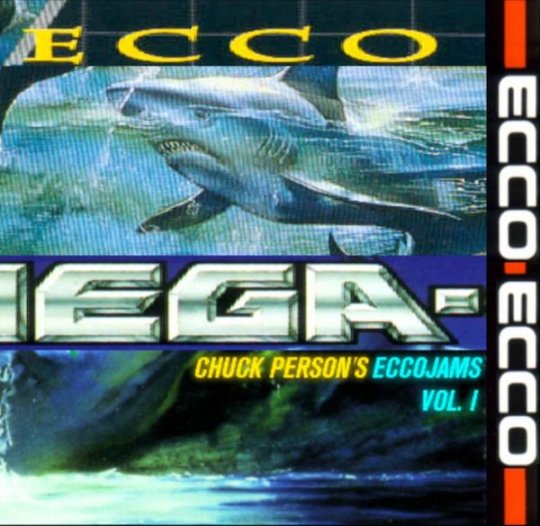
A major stylistic break from OPN’s back catalog and something of a manifesto for the rest of his career, Chuck Person’s Eccojams Vol. 1 came into being innocuously enough as an anonymous youtube upload that Lopatin only retroactively took credit for (in the form of a remastered reissue) after it literally invented vaporwave. From this point forward in Lopatin’s career, the ambient soundscapes would be replaced by something distinctly more musical; namely, on this record and the next official Oneohtrix Point Never release, Replica, samples. The approach for Eccojams is deceptively simple: 15 tracks, and each one of them consists simply of one or sometimes two samples pulled from 80's easy listening hits or muzak slowed down to a narcotic tempo and pitch, then drenched in echo and effects. Per Loptain, the eccojam approach and idea was intended to be a way of reclaiming lost culture and bringing a DIY, memey edge to music long forgotten in the annals of commercial history. For all the heady philosophical stuff, the approach really took off, spawning a huge (now basically dead) movement of fellow artists making vaporwave, reinvigorating a probably ironic fascination for ‘90s culture online, and influencing artists like Clams Casino and Kanye West. To me, Eccojams really demonstrates just how thorough Lopatin’s understanding of internet culture and the philosophical underpinnings of nostalgia is - when was the last time you heard of someone intentionally and successfully inventing a meme, let alone someone this fringe? If you’ve ever used the word “aesthetic” ironically, you probably owe some of your sense of humor to this record and the space it’s carved out for itself at the strange intersection of music, philosophy, and internet culture.
REPLICA (2011)

Replica was also probably the closest thing to a mainstream moment Daniel Lopatin had ever had thus far in his career: coming off the heels of literally inventing a genre of music and touting yet another new musical approach, a much wider audience than before was now curious as to what Oneohtrix Point Never might come out with next. The album this newfound fanbase got was, characteristically, a crazy album even for OPN - even within its most accurate genre signifier, plunderphonics (sample based music that isn’t hip hop,) there really isn't anything even remotely similar. Built around a treasure trove of ‘80s commercials that Lopatin ordered by the boxful on VHS and dutifully sampled one-by-one, Replica is simultaneously really sprawling and kaleidoscopic but also very simple and minute. Songs like Andro and the title track are serene ambient pieces that are eventually swept up in these waves of massive synth lines and samples, and The Power of Persuasion and Sleep Dealer play almost like eccojams, endlessly looping, but with a renewed energy and intensity (Sleep Dealer, interestingly enough, is built entirely around a Wrigley’s gum commercial). Elsewhere on the record, Lopatin triggers sample after manipulated sample in a dizzying way that eventually gives way to these blurred, beautiful pieces on tracks like Child Soldier (see if you can catch the M.I.A. sample,) the kinda hilarious grossout track Nassau, and Up. There really isn’t anything like this record in the OPN discography or anywhere else, and it also represents at least to me an interesting development on the idea of “vaporwave” as this act of cultural reappropration: if Eccojams saw Lopatin reimagining hits ingrained within the public memory, Replica sees him digging deeper into the American cultural psyche and attacking the history of our consumer culture even harder, playing mindless bits of sales-driven non entertainment on a loop and beckoning listeners to create their own meaning within that weird headspace. I think it’s a ton of fun.
R PLUS SEVEN (2013)

My personal favorite Oneohtrix Point Never record, R Plus Seven takes the idea of experimenting with culturally passé sounds a step further by occupying itself with some Rifts-era ideas - namely, early '90s tech fascination and the host of now considered “cheesy” sounds that came with it. Every single sound on R Plus Seven is totally clean, shiny, and metallic, seeming to exist in a totally sterile environment. Whereas the human voices found occasionally on past OPN records belonged to old samples and occasionally Lopatin himself, the voices here are all computer generated choir patches and individual voices. The songs of R Plus Seven seem almost engineered to sound of a piece with someone old cultural touchstone: Americans begins like a NatGeo nature doc before dissolving into a cacophony of wordless voices and bubbling synths, Problem Areas seems ready to soundtrack an educational video about math or computers, and every other track is peppered with pianos, horns, voices, and other instrumentation that sounds delightfully canned. The other major addition to the OPN sound on R Plus Seven is an increasing penchant for total stylistic left turns: motifs establish themselves and build only to be obliterated by an abrupt wall of noise followed by a totally new idea… Call it cheesy, but to me, the album almost evokes a computer recursively rewriting its own code, constantly stopping and starting and working in frenetic fits in between. Not once does any sort of human touch shine through on this album, but that doesn’t make the album dispassionate or desolate: it actually makes R Plus Seven easily the most fascinating OPN album to date, begging the listener to engage with it every time it evokes some cultural memory long delegated to being simply out of style. Lopatin is inviting is audience to engage with the basic building blocks of music and the culture that surrounds it on R Plus Seven, asking us why we value some sounds over others and displaying a total virtuosity in the realm of “computer music.” A must listen for anyone who wants to make music on a computer, or simply take a horrifying trip through a house of mirrors reflecting fascinating distortions of the culture they grew up in.
GARDEN OF DELETE (2015)

Easily the most visceral and rhythmic Oneohtrix Point Never record, and probably the closest Lopatin has ever come to a pure “pop” moment - take that as you will. Garden of Delete takes a total left turn away from cerebral, ambient experiments, and towards driving rhythms, extremely bright synths, heavy basslines, and vocals that seem simultaneously horrified and in awe of the state of the world as it exists; since it’s OPN, you can also expect a healthy dose of weird samples, extremely manipulated instrumental performances, and general fuckery with any of the cultural expectations a listener would bring to the table when approaching something resembling EDM. Songs like lead single Sticky Drama and closer No Good are the closest approximations of EDM that OPN has ever attempted, with throbbing, resonant bass hits and surprisingly melodic vocals giving away to total noise freakouts and, on Sticky Drama, samples from obscure vlogs on Youtube (yet another example of how OPN really effortlessly threads culture as everyone experiences it into something totally alien). Elsewhere, OPN brings a newfound intensity to tracks that, had they been wrote for earlier albums, would’ve simply been motifs: standout Freaky Eyes is a gothic epic that, after a few seconds of Kanye style chipmunk-soul, gives way to 8-bit video soundtrack bliss and horror movie soundtrack fodder, complete with digitized screaming. Elsewhere, Animals is an honest to god ballad with honest to god lyrics and a beautiful acoustic guitar part, and I Bite Through It is a fascinating exploration of syncopation and rhythm. With Garden of Delete, Oneohtrix Point Never shifted his conceptual focus onto the present and with that shift came a massive stylistic change towards frenetic, crazed intensity that I don’t think anyone could’ve predicted. Another interesting element of Garden of Delete is its sort of cinematic edge, evidence of Lopatin’s increasing prevalence as a film score composer and of his abilities to really build soundscapes around his music or tracks like Animals, SDFK, and Child of Rage. As a document of an omnivorous, Adderal-fueled flavor insanity that couldn't exist without the internet, Garden of Delete is further proof of Daniel Lopatin’s deep fascination and understanding of the world we live in, and of his unique ability to process it into music that’s equal parts unique, engaging, weird, and fun. Definitely not the best entry point to the OPN discography, but perhaps on of Lopatin’s best works.
If you like ambient music a lot, I’d probably recommend you start with Returnal. If you’re more interested in Lopatin’s late period craziness, I’d probably start with R Plus Seven or Replica and go from there. Hope this inspires anyone curious or intimidated by Oneohtrix Point Never’s huge discography to give his stuff a try - if you can’t already tell, I think it’s a worthwhile dive to take.
1 note
·
View note
Text
JULY SO FAR: HAIM/TORO Y MOI REVIEWS
With a few more major releases in the pipeline for this month (Arcade Fire, Tyler, Aminé, and Avey Tare), here are my thoughts on some notable records from the top half of this month.

HAIM - Something to Tell You - Even more so than HAIM’s debut album Days Are Gone, Something to Tell You sounds to me like a kaleidoscopic pastiche of every style of pop from Fleetwood Mac up until right now, filtered through hyper modern and idiosyncratic production that sometimes seems like its trying to mask deficiencies with songwriting. The Fleetwood Mac worship on songs like “You Never Knew” and the Top-40 sheen of songs like “Ready for You” and “Walking Away” sound great, because those are the two places where the modern studio tricks (pitched down vocals, chopped up musical phrases,) really seem to make sense for the song, at least to me. Other places, like the doo-wop revivalism of “Little of Your Love” and the skeletal balladry of “Right Now,” the strange production flourishes distract and detract from the songs themselves, and make me wonder if the other songs only sounded so good by accident. Another issue that I had with this record is that it does a lot of posturing towards “art pop” (whatever that’s supposed to mean) without the interesting conceptual ideas (lyrically OR sonically) that this little subgenre has always been so crowded with. While Something to Tell You can sound great and really be a lot of fun at its best moments, the indie/radio pop dichotomy they seem to be striking up falls flat without anything smart to say. (MEH)
Great Songs: Ready For You, Walking Away, Kept Me Crying

Toro Y Moi - Boo Boo - After Toro Y Moi’s most recent studio album, the guitar-rock courting What For?, Toro bandleader Chaz Bear quietly released Samantha, a pretty densely packed mixtape messing around with genres like chillwave, hypnagogic pop, and even mumble rap in an exciting and weird way. Bear continues down that artistic path on Boo Boo, abandoning any sort of ironic or analytical approach and just writing the best attempt at an 80’s R&B album that he possibly can. So, does it work? well - I like it. On Boo Boo, the ‘80s thing doesn’t just feel like Chaz laughing at us; here, he invites us to laugh with him, introducing a self-deprecating sense of humor and embracing attitude towards the kind of cheesy ‘80s-isms that put a dumb smile on my face. Hammy slap bass riffs, hilariously unsexy spoken word interludes, and ambient piano power ballads all find equal footing alongside the cool guy posturing, and these disparate musical aspects strengthen and support each other through the contrast they create. Boo Boo doesn’t excite me quite as much as the awesome indie guitar stuff did on What For?, but it’s still yet another solid entry into Chaz Bear’s every growing and ever consistent discography. (GOOD)
Great Songs: Girl Like You, Windows, Embarcadero
0 notes
Text
JAY-Z - 4:44 (REVIEW)
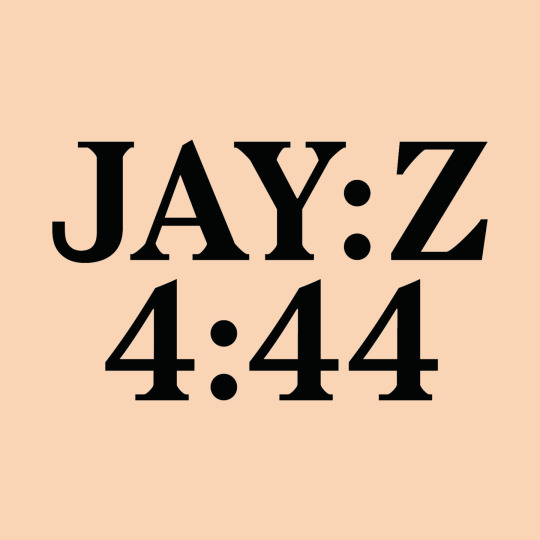
JAY-Z - 4:44 - It’s always a pleasant surprise when the old rich guys who seemed to be falling out of touch turned out to be paying attention all along - interpreted as such, JAY-Z’s 4:44 is an analogue to late period peaks like Bob Dylan’s Time Out of Mind and Gil Scott Heron’s I’m New Here. But, since it’s rap we’re talking about, 4:44 is fun and irreverent and opulent in all the right ways. Production wise, 4:44 sounds like money: almost every song is built around an expensive sounding sample, adorned only by skeletal drums and bass along with the occasional vocal feature, which usually ends up sounding like a sample anyway after being filtered through a gauntlet of effects. Vocally, the album couldn’t sound more off the cuff, with JAY-Z’s voice sitting high up and totally unaltered in the mix, placing him front and center in every song and bringing the unique qualities of his lyrical approach into focus. 4:44’s distinct sonic approach and new focus cast it pretty far detached from Jay’s last effort, the overly pandering Magna Carta Holy Grail, and, more widely speaking, rap at large, at least on JAY-Z’s level. The heavyweights considered to be Jay’s peers (Kanye, Drake, even Kendrick, to an extent,) are all coming off of the heels of middling and overlong albums suffering from a lack of focus and a desire to encompass the entirety of their careers into one record. On 4:44, JAY-Z does the opposite, choosing instead to recontextualize his career and hone in on a totally unique thing - that the album almost sounds like JAY-Z and producer No I.D.’s attempt at a Madvillainy-type record doesn’t hurt either. (GOOD)
Great Songs: Smile, 4:44, Family Feud
0 notes